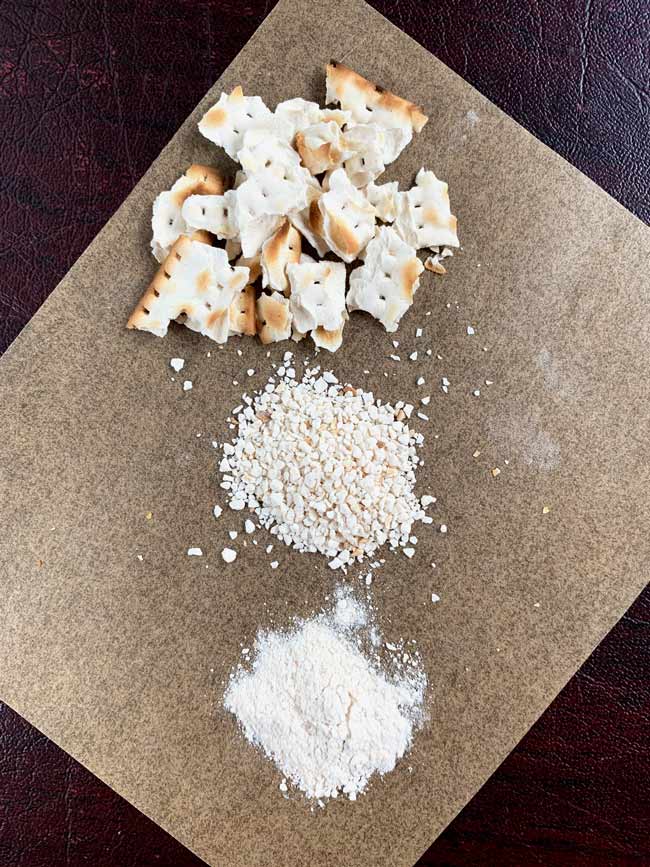Pesah Edition, P. 4
Kashering utensils:
אורח חיים, תנב:סעיף ב: יש ליזהר מלהגעיל כלי הבשר וכלי חלב ביחד, אלא אם כן אחד מהם אינו בן יומו.
Orah Haim 552:2: One should be careful, when kashering utensils in boiling water, not to put dairy and meat utensils together, but if one of them was not used within the past 24 hours [and therefore has no pleasant flavor] it is fine.
Rice:
אורח חיים, תנג:א: אלו דברים שיוצאים בהם ידי חובת מצה… אבל לא באורז ושאר מיני קטניות, וגם אינם באים לידי חימוץ ומותר לעשות מהם תבשיל
Orah Haim 553:1: These are the grains with which one can fulfil the obligation of Matzah… but not with rice or other legumes, which also cannot become Hametz and one can use them in a cooked dish.
משנה ברורה, תנג:ה: ואפילו לש אדם קמח אורז וכיוצא בו ברותחין וכסהו בבגדים עד שנפחה כמו בצק שהחמיץ אין זה חימוץ אלא סרחון ומותר באכילה
Mishna Berura 553:5: Even if one kneaded rice flour or something similar with boiling water, and then covered it with blankets until it swelled and it now looks like Hametz dough, this is not Hametz but rather rotting and one is allowed to eat it.
Grain bit by mice:
אורח חיים, תנג:ג: אם לא ביררו החטים מאכילת עכבר, אין בכך כלום. הגה: וכן אם לא ביררו ממנו אותו דגן שצמח
Orah Haim 553:3: If the wheat was not searched for grains bit by mice, there is no problem.
Rema: And the same applies if they did not search for grains which sprouted.
The Mishna Berura (553 explains the ruling of the Shulhan Arukh:
משנה ברורה, תנג:טז: שאין הגרגיר מחמיץ ממיעוט רוק שבפי העכבר
[There is no problem] because the saliva in the mouse’s mouth is not enough to make the grain hametz
We must admit that a world where one can say calmly that it is fine to eat flour made from wheat that might have been the main dish in a mouse’s feast, is somewhat different from the one we live in.
Shemura Matzah:
אורח חיים. תנג:ד: החטין שעושים בהם מצת מצוה טוב לשמרן שלא יפלו עליהם מים משעת קצירה, ולפחות משעת טחינה.
Orah Haim 553:4: It is recommended to protect the wheat used for Matzah of Mitzva [for the Seder], from coming in touch with water from the moment of harvesting, and at least from the moment of grinding.
What the Shulhan Arukh is saying is that ALL MATZAH IS SHEMURA!!!
There are different levels of Shemira – protection. It could be Shemura from the time of harvesting or from the time of grinding. The labels on Matzha packages should say so in clear and large print:
שמורה משעת קצירה / שמורה משעת טחינה
But wait, there’s more. Once a halakha gets out of control people forget what is written. In the summer of 2013, the NY Times published an article about the Matzo fields of Arizona:
Yisroel Tzvi Brody, rabbi of the Shaarei Orah synagogue in Borough Park, Brooklyn, stood at the edge of one of the fields on Monday, stooping to rub a grain of wheat between his wrinkled thumb and index finger. Removing his glasses, he brought the grain close to his eyes and turned it from side to side, like a gemologist inspecting a precious stone.
For seven weeks, while the wheat grew in scorching heat under impossibly blue skies, two men clothed in the traditional black and white garments of the Hasidim stayed in a trailer overlooking the crop, to be able to attest that the wheat, once matured, had been untouched by rain or other moisture. Workers were prohibited from carrying water bottles in the field. Dust danced in the air as the wind blew, but unpaved roads could not be wet while the wheat was growing. The goal was to prevent any natural fermentation from taking place in the grains before they were milled into flour and the matzo was baked, sometime in the late fall.
Rabbi Brody, apparently, never read the Shulhan Arukh or the Mishna Berura, who says (553:22)
משנה ברורה, תנג:כב: המנהג לקצור דגן של שמורה בעודן לחין קצת
The custom is to harvest the wheat for Shemura Matza when it is still somewhat moist.
Let us return to the Shulhan Arukh and the next amazing statement:
ובשעת הדחק מותר ליקח קמח מן השוק
At times of need, one can buy flour from the marketplace.
The Mishna Berura explains (553:25):
משנה ברורה סימן תנג ס”ק כה
ונהגו לעשות שימור לשם מצה בכל המצות משעת טחינה ולפחות משעת לישה
The custom is to make all matzah a Shemura Matza by protecting it from the moment of grinding, and at least from the moment of kneading.
What the Mishna Berura is saying that the potential for the flour to become hametz starts at the moment of mixing it with water, and if you make sure it does not become hametz, it is considered protected – Shemura.
Obviously, that ruling of the Shulhan Arukh has been restricted and overridden for a million reasons, and we all now buy supervised Matzah, but the simple truth remains that flour is powder and not hametz, and no fermentation process has taken place within it.








Ohr HaChaim Yomi – Emor